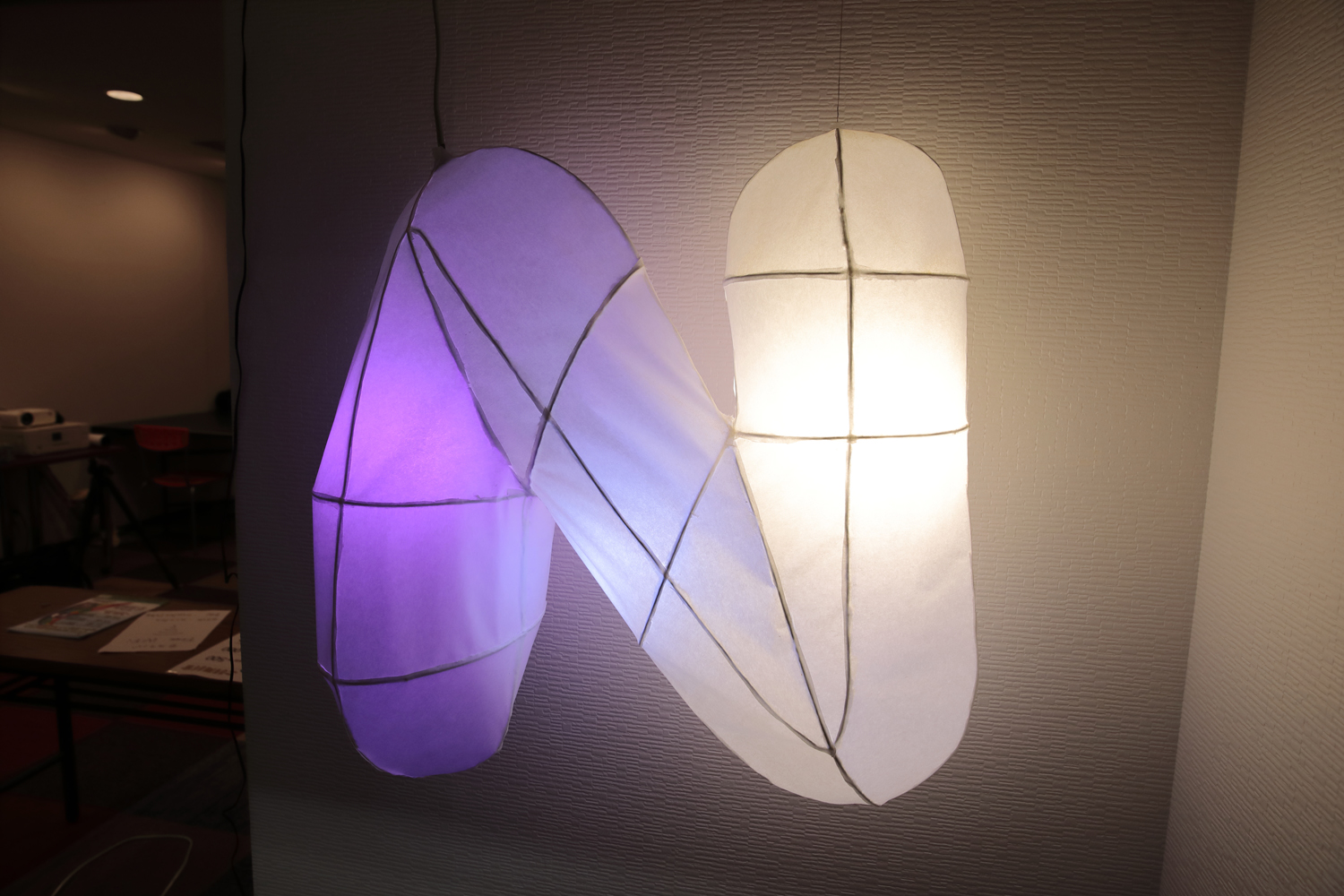
At night, a lantern shines at Tamariba N Colon

At night, a lantern shines at Tamariba N Colon
An N-shaped lantern lights up a corner of a shopping street in downtown Iwamizawa; it is the co-working space ‘Tamariba N Colon.’ When asked about the origin of the N in the name, space proprietor Katayama Junichi tells us “N is for Nebuta, and also New and Next. It also includes the wish to create something to continue after the colon. Katayama is one of the founding members of the Iwamizawa Community Development Consortium (ICDC), a community development organization working to revitalize the Iwamizawa area. Launched in April 2023 by four members, including Katayama, ICDC currently has five core members who use this space as the base of their operations.
Incidentally, New and Next are understandable, but why Nebuta? Actually, the Iwamizawa Nebuta Festival, which has been held since 2021, is strongly connected to the establishment of ICDC and N Colon.

Its glass front makes many people curious and want to take a peek
Held in August, the Iwamizawa Nebuta Festival began as a volunteer activity for students at the Iwamizawa Campus of the Hokkaido University of Education, and is becoming one of Iwamizawa’s most famous attractions. The festival was conceived by Fujimoto Yuhei, who served as the first executive committee chairman.

Fujimoto hails from Aomori prefecture, the home of Nebuta
Fujimoto came up with the idea of creating the Nebuta festival in his first year at university. During his activities, he learned that Nebuta were once made in Iwamizawa and paraded through the town center, with students from the University of Education also taking part. He then started activities to revive the Nebuta Festival in Iwamizawa.
Although the festival was postponed for a year due to the Coronavirus pandemic, it was held for the first time in the autumn of 2021. Then, ‘Nebukuro’ – a base for disseminating information about the festival – was established in the shopping street. By creating a space where students and local residents could interact, young people were attracted to the town center, and many local residents stop by to visit, revitalizing the shopping district that had been in decline.

Nebukuro, a base for the dissemination of information (photo courtesy of Iwamizawa Nebuta Project Executive Committee)


復活した「岩見沢ねぶた祭」のようす(写真提供:岩見沢ねぶたプロジェクト実行委員会)
The revived Iwamizawa Nebuta Festival (photo courtesy of Iwamizawa Nebuta Project Executive Committee)
This movement caught the attention of Katayama. He ran a café and general store and had been attempting to create jobs for young people in the hope of stemming the flow of such young people out of the Sorachi area. “It was refreshing to see students gathering in the town center,” says Katayama, but he was concerned that the town would lose its vitality once again when Nebukuro closed at the end of the festival. “I thought it would be a shame if it disappeared. We need a place where young people can face new challenges, a place where they can connect with the town, and I wanted to support them.” He then approached Fujimoto and they established N Colon.

Katayama is from Fukagawa. “I want to support students who want to accomplish something in this town.”
Currently, two locations have been established in the shopping district, the second of which was used as Nebukuro. It is occasionally used for ‘bring your own bottle’ social events, and it has become a place where the locals can gather and exchange ideas for community development.

A ‘bring your own bottle’ drinking event (photo courtesy of Iwamizawa Nebuta Project Executive Committee)
Ohmori Hirofumi, who moved to Iwamizawa in 2020 for work purposes, says, “I like the BYOB events as they allow me to talk frankly with locals” He has been interested in community development since his university days and has been involved in community development activities at his new workplace. He began frequenting Nebukuro after seeing the Nebuta floats on display at the station, and his interactions with the students and local residents deepened. “Before I knew it, I was caught up in it,” he laughs.
Omori describes Iwamizawa as being “just the right size,” adding “With only one university and a small number of students, the ones who are doing something stand out, and you can feel the warmth of the local people who accept them into the community.”

Ohmori comes from Sapporo
Fujimoto, too, has felt the “closeness of the people” since he was a student. “When I’m asked what I like about Iwamizawa, I always answer, ‘I like the people’. People here know the students well and are willing to cooperate with them. I think it is an interesting environment that you don't find in big cities.”
However, Iwamizawa is not the bustling city it once was. Many of the students at the University of Education are from outside Iwamizawa, and leave the city after graduating, so young people are not settling in Iwamizawa.
“The lack of jobs in Iwamizawa makes it difficult for people to settle here, but I think we can strengthen the relationship between the population and Iwamizawa by having people return at least once a year. By getting involved in the Nebuta Festival when they are students, we can create a flow of people who want to come back here for the festival. The Nebuta Festival is one of the tools we use to increase the population involved.”
Fujimoto also currently works in Sapporo, but returns to Iwamizawa twice a week to work as a core member of ICDC.
And Katayama hopes to spread the power of young people from ICDC to the Sorachi area. “I think we can use the example of Iwamizawa to expand our community-building activities throughout the whole of Sorachi.”
In future ICDC plans to operate as an NPO.
Tamariba N Colon 
IHK Bldg. 1F, 4-jo Nishi 4-chome 12, Iwamizawa Hokkaido, Japan
Tel. 090-5984-5974 (Katayama Junichi)
Opening hours: 10:00–18:00
Occasional Irregular Closures (closed December 31 – January 3)